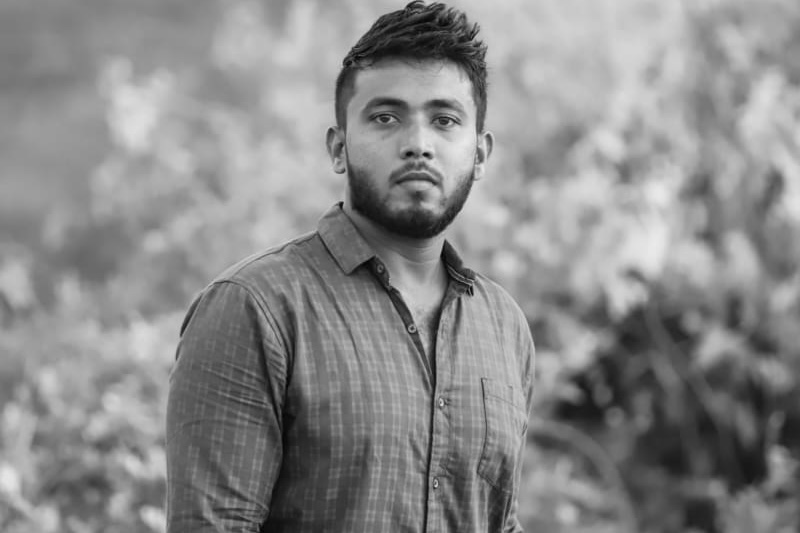Sri Lankan authorities must immediately end the harassment of Tamil journalist Kanapathipillai Kumanan and withdraw the summons issued by the Counter Terrorism Investigation Department (CTID) of Sri Lanka Police, eight international human rights and media rights groups said today.
Based in Sri Lanka’s Northern Province, Kumanan is a photojournalist, president of the Mullaitivu Press Club, and human rights defender, who documents violations against Tamil civilians by security forces in the heavily militarised north and east of the country. He has been served a summon by the CTID to appear for an inquiry on 17 August 2025. The police notice does not state the reason for the inquiry, although he was informed by telephone that it was in connection with his social media posts. It is believed the summons are a reprisal for Kumanan’s reporting — primarily on human rights issues and, most recently, the mass grave excavations in Chemmani, Northern Province. Kumanan has posted updates and photos on social media documenting 41 days of excavations, during which he reported that more than 140 skeletal remains were either exhumed or unearthed. His photographs have been widely shared and published by advocacy and news outlets.
Since the bloody end of the armed conflict in May 2009, Kumanan has played a key role in reporting on issues such as enforced disappearances, military land acquisition, environmental crimes, and the campaigns of survivor communities demanding truth, justice, and redress for wartime violations and abuses.
The summons is part of a broader pattern of intimidation against Kumanan, his family, other journalists and human rights defenders who expose human rights violations, abuses and war crimes in Sri Lanka. Kumanan has previously faced direct reprisals, including threats against his family in 2024 aimed at silencing his work.
The use of the CTID and other counter-terror mechanisms to target a Tamil journalist is not new—but it remains deeply concerning. Under successive governments, Sri Lankan authorities have abused the regressive Prevention of Terrorism Act (PTA) and the counter-terror police to punish journalists and human rights defenders who document and report on rights violations and abuses and deter them from carrying out their work. Tamil and Muslim human rights defenders—particularly in the country’s north and east—have been especially affected by such reprisals.
We call on Sri Lankan authorities, including the Minister of Public Security, the Police Chief, and the Ministry of Defence to ensure that all journalists and human rights defenders in Sri Lanka can work in a safe, enabling environment, free from intimidation and retaliation.
We urge the international community, including the concerned United Nations human rights mechanisms and member states, to closely monitor all ongoing violations and reprisals in Sri Lanka, especially the continued misuse of counter-terrorism legislation to suppress those speaking out on war-related crimes. To ensure such vigilance, we call on the UN Human Rights Council to renew the OHCHR’s monitoring and reporting mandate on Sri Lanka, as well as the OHCHR’s Sri Lanka Accountability Project, when the Council reviews Sri Lanka’s human rights record—particularly on accountability and justice—at its upcoming 60th session.
Sincerely,
Asian Forum for Human Rights and Development (FORUM-ASIA)
Committee to Protect Journalists (CPJ)
CIVICUS: World Alliance for Citizen Participation
Front Line Defenders (FLD)
Free Press Unlimited (FPU)
International Commission of Jurists (ICJ)
International Press Institute (IPI)
Reporters Without Borders (RSF)
Download
The joint statement is available for download here.





